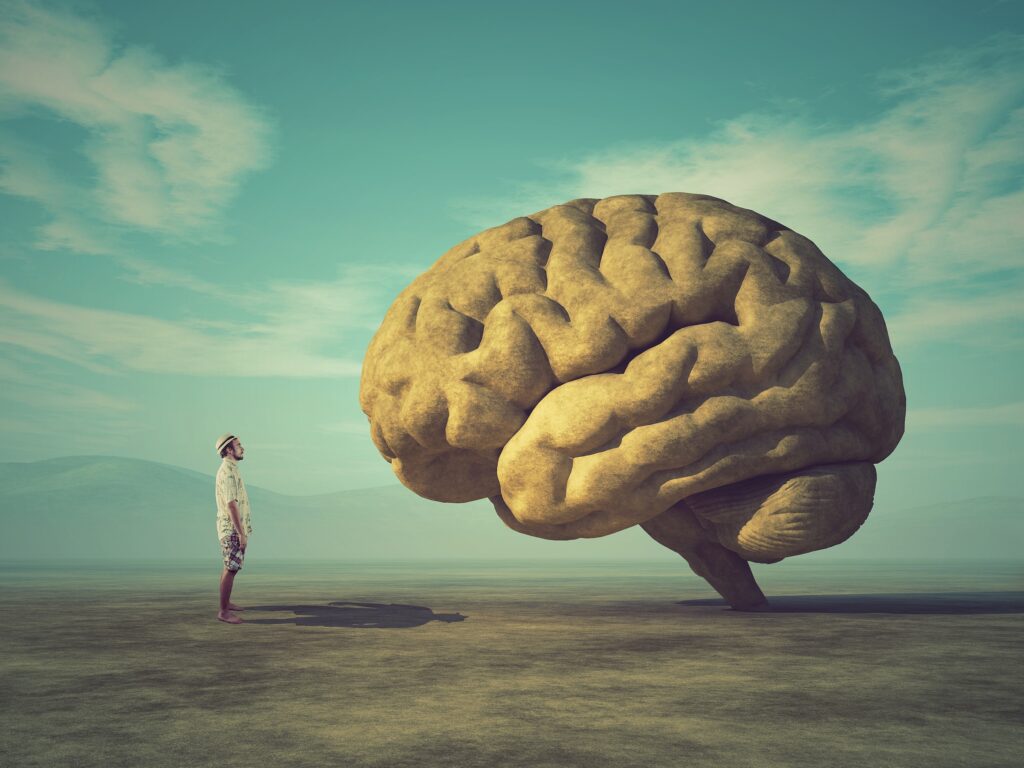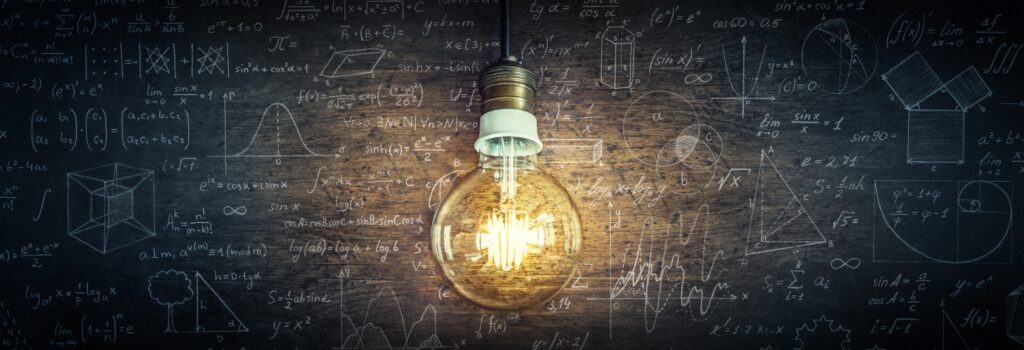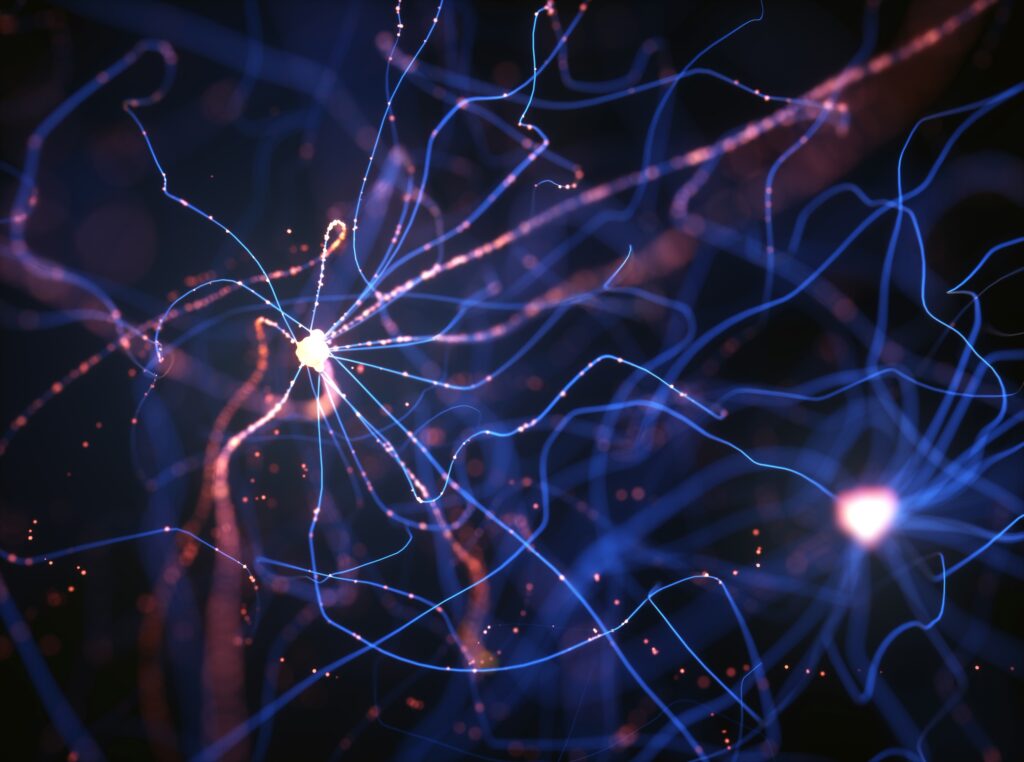The lost music with which the world worlds
Reading | Philosophy
![]() Arthur Haswell, BA | 2024-11-22
Arthur Haswell, BA | 2024-11-22

Arthur Haswell invites us to pay attention to and, once again, like our ancestors once did, hear the rhyme and rhythm with which the world worlds. Reality, he maintains, unfolds according to a form of music that, in ages past, humans were matter-of-factly sensitive to. Granted that, if we could sense it again, we could find the codas of the modern world to be excessively depressing, frightening, and bleak. For this reason, perhaps subconsciously, we may not wish to hear them. But, he suspects, we could also find in them much beauty and harmony that enrich our lives. This is a profoundly edifying essay.
In a village with bells in its belfries that chimed but never pealed, an old lady arrived whistling. The villagers gathered around her, wondering what the noise meant. The old lady stopped to address the small crowd. “What’s the matter? Don’t get many travellers in these parts?” she asked. There was a brief silence before a young boy asked, “What were you doing with your mouth? Why were you making that noise?” For a moment, the old lady couldn’t understand what the boy was referring to, as it was so natural for her to whistle. “You mean whistling? Well, I whistle because I like it, I suppose,” she replied. “Like what?” the boy probed. “The tune. I like the tune, and I like to whistle it.” The villagers muttered to each other in consternation. To them, the whistling simply sounded like a noise. There was nothing to like about it, any more than there was anything to enjoy about the bleating of a sheep. They couldn’t make sense of what she meant, or why she would want to make such a strange noise for no reason. The old lady dropped her backpack onto the cobbles of the street and pulled out a wooden flute. She brought the embouchure hole to her lips and began to flute a bittersweet air. But the villagers were unmoved. Some even covered their ears with their hands. They heard no melody, felt no tugs at their heartstrings. All they heard was a persistent and annoying noise. They couldn’t make sense of what it could possibly be for, or why the old lady should want to make such a noise. Eventually, one of the villagers concluded that the noise must have a function, and as he couldn’t understand what the function was, it must be a nefarious one. He shouted, “She’s trying to curse us!” and the villagers mobbed the old lady. They dragged her to the square and tied her to the stake they kept there, ready for emergencies such as this one. After burning the old lady on a roaring fire, music was never heard in the village again, and the villagers returned to their sallow complacency.
Imagine that, as you listen to a beloved piece of music, it gradually ceases to make sense. The refrains that once made your heart flutter begin to seem soulless and drab. Eventually, it no longer feels like music; all you hear is a cacophony, a senseless jumble of noises. From this moment on, your life is without music. Friends play you songs and symphonies, but they no longer seem musical. It is as if you have lost a sense.
It is in a state similar to such extreme amusia that many of us find ourselves today. Of course, we listen to music more than ever. But the way we attend to music is entirely cordoned off, reserved solely for music itself. As such, it is as if music came into being out of a vacuum, and we struggle to understand why it exists or where it came from. Why is it so unlike anything else in the world? What is its purpose? How can a melody with no explicit meaning or message move me and have such power over me when really it is nothing but a jumble of noises?
There is no answer to this question because it is based on a false premise. The false premise rests on the presupposition that a jumble of noises is how the world should be, according to any right-thinking person, while music is a strange, almost miraculous exception and illusion. But this is merely a prejudice borne of our current hylomaniac [Editor’s note: hylomania is an obsession with matter] worldview (the contours of hylomania should become apparent as this short essay proceeds). That isn’t to deny that there is such a thing as a jumble of noises; of course there is, but it is an edge case of the musical.
For the ancient Greeks, music was not simply a stimulating arrangement of sounds, but a mountain stream springing from the source of being. The symmetries of musical intervals were not arbitrary, but reflected the divine proportions that ordered the cosmos. Pythagoras and his acolytes, upon discovering that musical harmonies could be expressed as simple ratios, saw in this a profound revelation about the nature of existence itself. This idea was crystallized in the notion of the ‘music of the spheres’: a cosmic symphony conducted by the movements of celestial bodies, imperceptible to mortal ears, yet governing all aspects of being. Plato, in his Timaeus, described the world’s soul as constructed from musical ratios. For the Greeks, music wasn’t cordoned off from the rest of existence, but was considered an expression of the deepest structures of reality.
When I refer to the ‘hylomaniac worldview,’ a more apt term might be ‘Weltanschauung.’ While ‘worldview’ describes a more intentional, self-conscious perspective on the world, ‘Weltanschauung‘ refers to the underlying foundation of presuppositions that any opinion rests upon. The German writer and polymath Carl Christian Bry describes, in Verkappte Religionen (Masked Religions), latent ideologies that insidiously and “monomaniacally” inform all sense of meaning, so that the hapless disciple of such a “masked religion” adamantly defends its dogma and “in each and every thing he finds only the confirmation of his opinion” [1]. The modern hylomaniac, permanently drunk on the fumes of the contemporary zeitgeist, turns the world to gravel with every glance, yet can’t imagine there could be another way of attending to it, or even that he is attending to it in a particular way. The hylomaniac Weltanschauung is so foundational and ubiquitous that its most fervent defenders naturally assume they are occupying a view from nowhere, and any suggestion that their view is partial will be met with incredulity.
In the Weltanschauungen of ancient societies, every turn of events held significance. Every triumph and catastrophe resonated within a great and transcendental composition. Such refrains still exist in our world, but we can no longer hear them; we have become largely amusiac. Consider the following example: When Imperial Japan entered the Second World War, it was one of the few remaining civilizations that had maintained a spiritual order relatively untouched by Western colonialism. Despite significant modernization and the adoption of Western technologies and systems, Japan preserved a cultural framework where the societal order was considered sacred. Similar to ancient warriors such as the Mayans, Vikings, or Spartans, many Japanese soldiers viewed dying on the battlefield as the ultimate privilege. For them, preserving their sacred societal order, epitomized by unwavering loyalty to the Emperor, was of absolutely fundamental importance. Catastrophically, such adamantine zeal, combined with modern weaponry and propaganda, resulted in unfathomable and wholesale brutality, cruelty, and suffering.
There is something divinely significant about the fact that this flare of ancient fanatical spirit, which wreaked havoc on the world stage, could only be silenced by that most godlike, elemental, and absolute expression of modernity: the atom bomb. Here is a transcendental clash of forces, and yet we barely recognize this facet of the catastrophe. We think of the incomprehensible horror of Hiroshima and Nagasaki and mourn the hundreds of thousands of lives lost or ruined. We have a slight sense of the titanic power of the atom bomb and Oppenheimer’s affinity with Vedic spirituality. But mostly, these connections seem tenuous or merely poetic. Rather, the vaporization of myriad people seems to be just a particularly great crash amongst the general din of our world. We understand the bombings in a functional sense and their significance in terms of how they influenced the course of history. But what would seem bizarre to any ancient society is that we don’t consider them to have any transcendental aspect. It is to this aspect that we have become deaf.
To suggest that any given historical event has a transcendental aspect will invite two questions: what does such an aspect say, and what purpose does it serve? The answer to both is the same: asking such questions is like asking what the meaning or purpose of a plaintive melody is. A follow-up question might ask whether seeing the great narratives of history with all their horrors and atrocities as akin to melodies and refrains isn’t rather callous and flippant. The answer is no. Terrible events remain terrible events. They don’t become less abysmal, and the unfathomable pain experienced by those affected by them doesn’t become more comprehensible to those who are lucky enough to have avoided them. Nor does violence become palatable or disasters instrumental. Given this, there might be one further question: What difference does it make then? Why not remain amusiac?
When we imagine the world of a person living in a traditional society, we imagine a world with specific identifiable meanings that ours lacks. When we gaze at the 35,000-year-old Lion-man of Hohlenstein-Stadel and try to imagine the Weltanschauung from which this little ivory figure arose, we might picture a world filled with spirits, each with their place and role. Perhaps we would be right in this estimation, but we forget that there was a mode of being, a space in which these entities manifested. This space is one we, these days, reserve for music and little else. As a result, while the world of the animist is a tapestry of the sacred, the world of the hylomaniac is a scattering of loose strands. One might wonder how this can be the case; doesn’t modern physics reveal extraordinary symmetries and a transcendental structure to reality? In practice, the hylomaniac might appeal to this fact when backed into a corner about the absurdity of their Democritean idée fixe, but this is merely a rhetorical maneuver, as evidenced by the fact that they will scoff at anyone who appeals to this fact in an effort to dispel hylomania.
In the Gnostic tradition, there is the hylic, a concept not unlike the modern philosophical zombie. The latter refers to the idea of a person without phenomenal experience, like an automaton. The idea that some people really are hylics is a very dangerous and deranged belief, but the hylomania in our society is so pervasive that there are even people who believe that everyone is effectively a hylic or philosophical zombie, including themselves. There have even been hylomaniacs who have made careers from telling the world this. For them, their amusia is so strong that even sense itself has been reduced to senselessness. There are no melodies in such a space, only disconnected noises.
Such extreme hylomania can be very corrosive to the soul. Anyone who has floated about in online philosophy forums long enough will have encountered at least one young person deeply distressed by the idea that the songs of their heart are nothing but sound waves. All meaning is lost and their confidence is shot. Their world has become a racket of inhuman noise. Just as the amusiac might say they can no longer make sense of a piece of music they once loved, the suffering hylomaniac can no longer make sense of the world or themselves. Of course, they might be able to detail certain functional descriptions of the world. But a functional description of a melody could hardly be said to help the amusiac make sense of it.
This, then, is the answer to the question, “Why not remain amusiac?” Because, however painfully sad it may be to listen to Schubert’s Winterreise, it is infinitely more valuable to hear it as music rather than a scattering of noises. Without the ability to make sense of the world in this way, the world can become maddening. Having said that, if we return from amusia, we may find the codas of the modern world to be excessively depressing, frightening, and bleak. Perhaps subconsciously, we don’t wish to hear them. But I suspect that if we do, we will find much beauty and harmony too, and our lives will be richer.
Finally, I am aware, of course, that I could be seen to be romanticizing the past. But if there are valuable things we have lost, it doesn’t mean there aren’t many wonderful things we have gained. Nor does it mean there aren’t many terrible things we have left behind. After all, who would want to return to the harshness of ancient life? But I see no reason why we should have to return to any previous Weltanschauung. Nor do I think it is ever possible to do so. There is no need for bargaining here; all I am suggesting is that we remember how to hear how the world worlds.
Citation
1. Safranski, Martin Heidegger: Between Good and Evil, trans. Ewald Osers, Harvard University Press, 2003, pp. 54; Bry, Verkappte Religionen, Nördlingen, 1988, pp. 13.

Essentia Foundation communicates, in an accessible but rigorous manner, the latest results in science and philosophy that point to the mental nature of reality. We are committed to strict, academic-level curation of the material we publish.
Recently published
Reading
Essays
Seeing
Videos
Let us build the future of our culture together
Essentia Foundation is a registered non-profit committed to making its content as accessible as possible. Therefore, we depend on contributions from people like you to continue to do our work. There are many ways to contribute.















